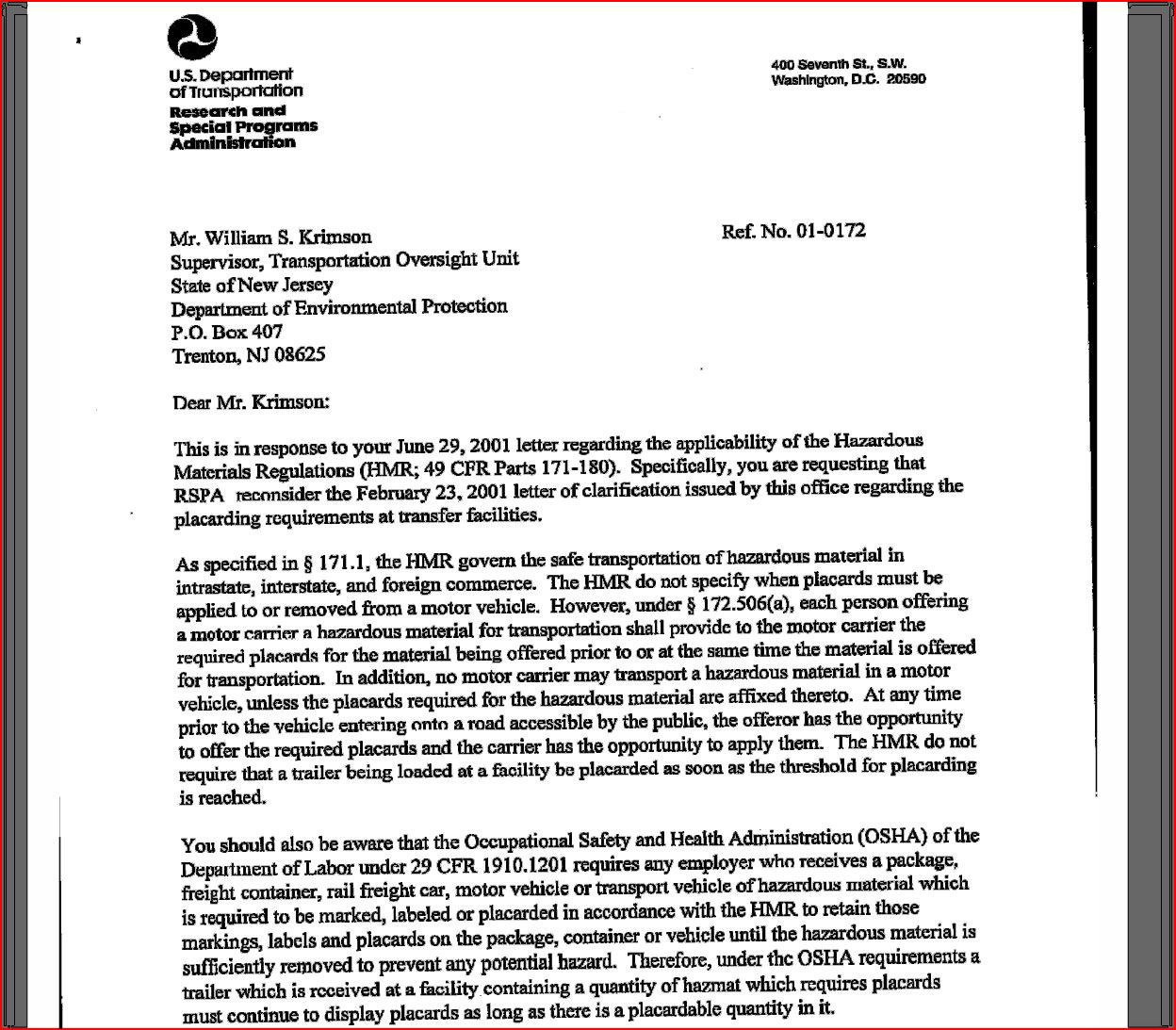mossbackman
TB Lurker
- Credits
- 0
It is still past practice. Now we have proof, our terminal just started using OTC-239.
Past practice or not recinded or not.
It's the law!!
It is still past practice. Now we have proof, our terminal just started using OTC-239.
Past practice or not recinded or not.
It's the law!!
I heard of one of our terminals getting fined recently for having unplacarded and incorrect placards on trailers sitting at the dock. I agree with Mossbackman, It's the law!The law says trailers do not need to be placarded until they are on a public road, but once placarded the placards can not be removed until the hazmat is removed.
The law says trailers do not need to be placarded until they are on a public road, but once placarded the placards can not be removed until the hazmat is removed.
Where might I find a copy of said law in writing?The law says trailers do not need to be placarded until they are on a public road, but once placarded the placards can not be removed until the hazmat is removed.

Hey Moss, I agree with you, I know I have heard this law before but cant find it in writing. Send a copy of those regs, or something the fire dept has to prove it. There is a firehouse by my terminal I will stop in there if you dont!:smilie_132:Again
The 1st sentance on page 97 of the California Commercial Drivers handbook says different.
Placarding
Attach the proper placards as you load the vehicle and before you drive it. You may move an improperly placarded vehicle only in an emergency to protect life or property.
That way when the fire department responds to a fire in a trailer and the trailers on each side have hazmat, the firemen know whats going on.
The fire house right next to my yard agrees very strongly!
Trailers are to be placarded by the dock even the rear placard is to be switched by the dock once the driver pulls away from the dock, this goes for city drivers also, if the trailer is not placarded you are to report it to the dock supervisor.
Only at dark terminals are drivers to placard a trailer if the dock did not, and that is after you notify central.
 ) clarifying the rules.
) clarifying the rules.

